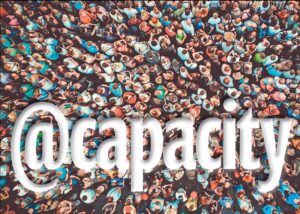Senior Visual Art majors’ will present bodies of work in a variety of mediums including: illustration, painting, photography, printmaking, and sculpture. This group exhibition is mounted under the supervision of Assistant Professor of Photography Leah Dyjak.
Gallery hours: Tuesday, Wednesday, Friday & Saturday 1-5 p.m.; Thursdays 1-8 p.m.
Please note: Wheaton currently requires guests to wear a mask indoors regardless of vaccination status.
Senior Visual Art majors’ will present bodies of work in a variety of mediums including: illustration, painting, photography, printmaking, and sculpture. This group exhibition is mounted under the supervision of Assistant Professor of Photography Leah Dyjak.
Gallery hours: Tuesday, Wednesday, Friday & Saturday 1-5 p.m.; Thursdays 1-8 p.m.
Please note: Wheaton currently requires guests to wear a mask indoors regardless of vaccination status.
The ensemble performs under the direction of Artistic Director Andrea Taylor-Blenis. Guests Tap Out Load and TRYBE will also perform. Tickets: $10 general, $5 faculty/staff & seniors, $2 students
Tickets may be purchased online via the Watson Box Office.
Please note: Wheaton College requires masking for at all events, regardless of vaccination status.
The ensemble performs under the direction of Artistic Director Andrea Taylor-Blenis. Guests Tap Out Load and TRYBE will also perform. Tickets: $10 general, $5 faculty/staff & seniors, $2 students
Tickets may be purchased online via the Watson Box Office.
Please note: Wheaton College requires masking for at all events, regardless of vaccination status.
The ensemble performs under the direction of Artistic Director Andrea Taylor-Blenis. Guests Tap Out Load and TRYBE will also perform. Tickets: $10 general, $5 faculty/staff & seniors, $2 students
Tickets may be purchased online via the Watson Box Office.
Please note: Wheaton College requires masking for at all events, regardless of vaccination status.
The band, under the direction of Assistant Professor Jeffrey Cashen perform a wide ranging selection of jazz arranged for the band by Cashen. Special guest PHAT Police will also perform.
Please note: Wheaton College requires masking for at all events, regardless of vaccination status. Seating is limited.
The Wheaton Chorale and Chamber Singers, under the direction of Professor Tim Harbold, present a varied spring concert, featuring Haydn’s “Insanae et Vanae Curae,” contemporary favorites from Whitacre, Lauridsen and Runestad, and a range of jazz and popular selections. We are eager to share our music with you!
Gifted student performers demonstrate mastery in voice, violin, cello, piano and other instruments.
Gifted student performers demonstrate mastery in voice, violin, cello, piano and other instruments.
Please join us for an opening reception celebrating our 2022 Senior Visual Art Majors’ Exhibition @capacity. Students will present bodies of work in a variety of mediums including: illustration, painting, photography, printmaking, and sculpture. This group exhibition is mounted under the supervision of Assistant Professor of Photography Leah Dyjak.
